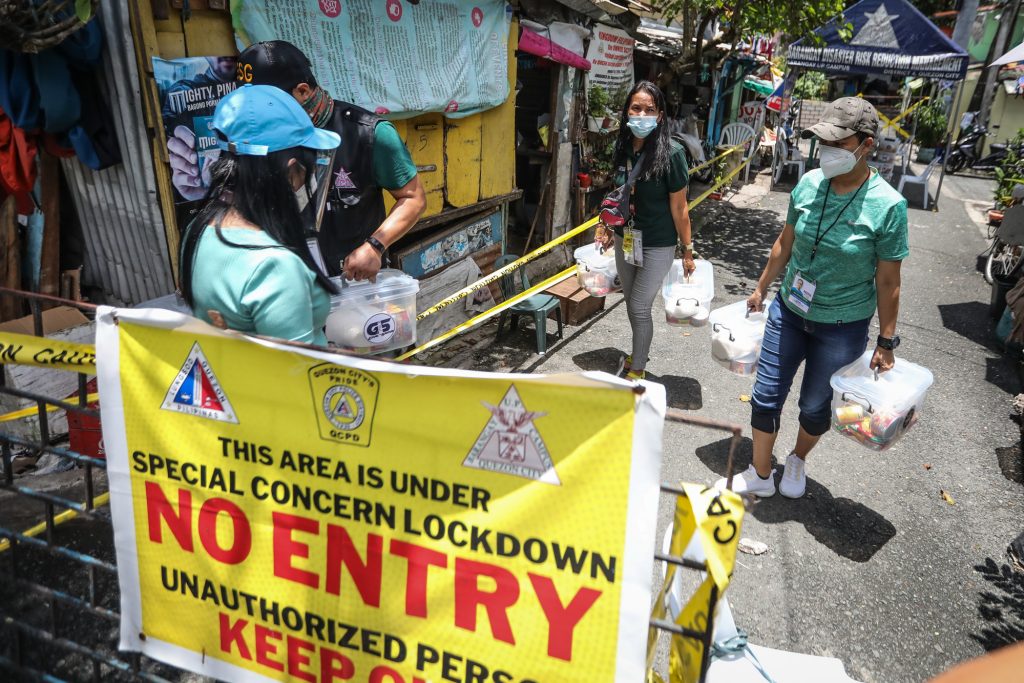
The dictionary has many definitions of what a bubble is. It is a globule of gas in a liquid mass (ocean bubbles, for instance) or gas separated from other gases (like bubbles we blow on air as children).
Applied to economics, the bubble metaphor refers to the unrealistic economic boom which ends in sudden collapse (“stock market bubble”). In sports, players are segregated from the general public to prevent contamination from outsiders during the games. Applied to society, bubble is a ghetto of like-minded homogeneous community which reinforces their shared opinions against others unlike them (“conservative or liberal bubble”).
Two things about bubbles. First, the elements inside distinguishes itself from those outside; bubbles live in that basic distinction (us versus them). Opening itself to outside elements destroys the bubble’s life. To preserve it, do not relate with outsiders. Second, bubbles live a precarious existence. They can burst anytime; their pretensions are gone in an instant and we are back to reality (as in economic boom and bust cycles).
The bubble metaphor is important because it is the dominant frame of President Rodrigo Duterte’s militarized approach to the pandemic. It is called with many names — quarantine, lockdown, isolation, stay-at-home and many others. The concept is simple. Live inside your own bubble! Or we will arrest you.
On the one hand, it is understandable and maybe necessary. Multiple exposures spell contamination. Stay at home and save lives. This the IATF refrain. On the hand, there are problems.
First: only those who have the means can live in bubbles. They can order food and goods and ask Grab or Lalamove to leave it by their gates. They have savings and do not need to go out to work. They have internet and can communicate with their families and friends outside, many of whom, also live inside their own bubbles. Ironically, no matter how much they express concern for one another, they are also wary of each other’s presence. “Do not trust your family and friends,” one pandemic meme goes.
But what about those who have none? What about those who are in a “no work, no pay” arrangement? One father in Payatas told me with teary eyes during the first ECQ: “Lalabas talaga ako. Bahala nang ma-COVID. Bahala nang makulong. Ayokong makita ang mga anak kong tumirik ang kanilang mga mata sa gutom. Yan ang hindi ko po kaya!” The bubble like “social distancing” is actually a class concept. Only the privileged classes can afford it.
Second, if the government does nothing while they lock people down, they are just killing them twice as much. The ineffective “ayuda” (hindi pa alam kung saan kunin ang budget, Presidential spokesman Harry Roque said); the dismal contact tracing; the lack of support for health workers (and they are now resigning); the expired medicines in storage buildings; no systematic rollout of vaccines or lack of them — all these suffocate people whom they lock inside the bubble. Government neglect and incompetence kills! And now that the evidences are out (Pharmally, ikaw ba yan?), we know that corruption kills, too — thrice as much.
Third—and I think this the main problem with the bubble metaphor—is its being closed from voices other than itself, from ideas which are distinct and different. So it is always “us” versus “them.” Our bubble versus theirs. We have heard it from the beginning of this Presidency: we the poor versus the elite (except the oligarchs from Davao); our country versus foreign incursion (except China); the children of this country versus the drug addict (and not the big drug lords), etc. The intention is to keep others at bay. The pressure of the other might prick our bubble and burst its illusionary and precarious existence.
This explains Duterte’s allergy to dissent, to criticism, to audit. From Leila de Lima to Maria Ressa, from human rights advocates to activists on the street, from ABS-CBN to Commission on Audit. “Sinong nag-audit ng COA? If I become vice president, I will audit COA myself.” A good offense is the best defense. For fear also haunts the residents of the bubble. Fear of the ICC. Fear of human rights accountability. Fear of the voices of the dead coming back to life in their surviving families seeking for justice. By all means, running for the Vice Presidency is the last hopeless attempt to keep the bubble afloat.
Yet the Gospel on Sunday tells us a different story: what comes from outside does not destroy us; what comes from inside (our own bubble) does. (Mark 7: 21-23).
Father Daniel Franklin Pilario, C.M. is a theologian, professor, and pastor of an urban poor community in the outskirts of the Philippine capital.
Source: Licas Philippines
0 Comments